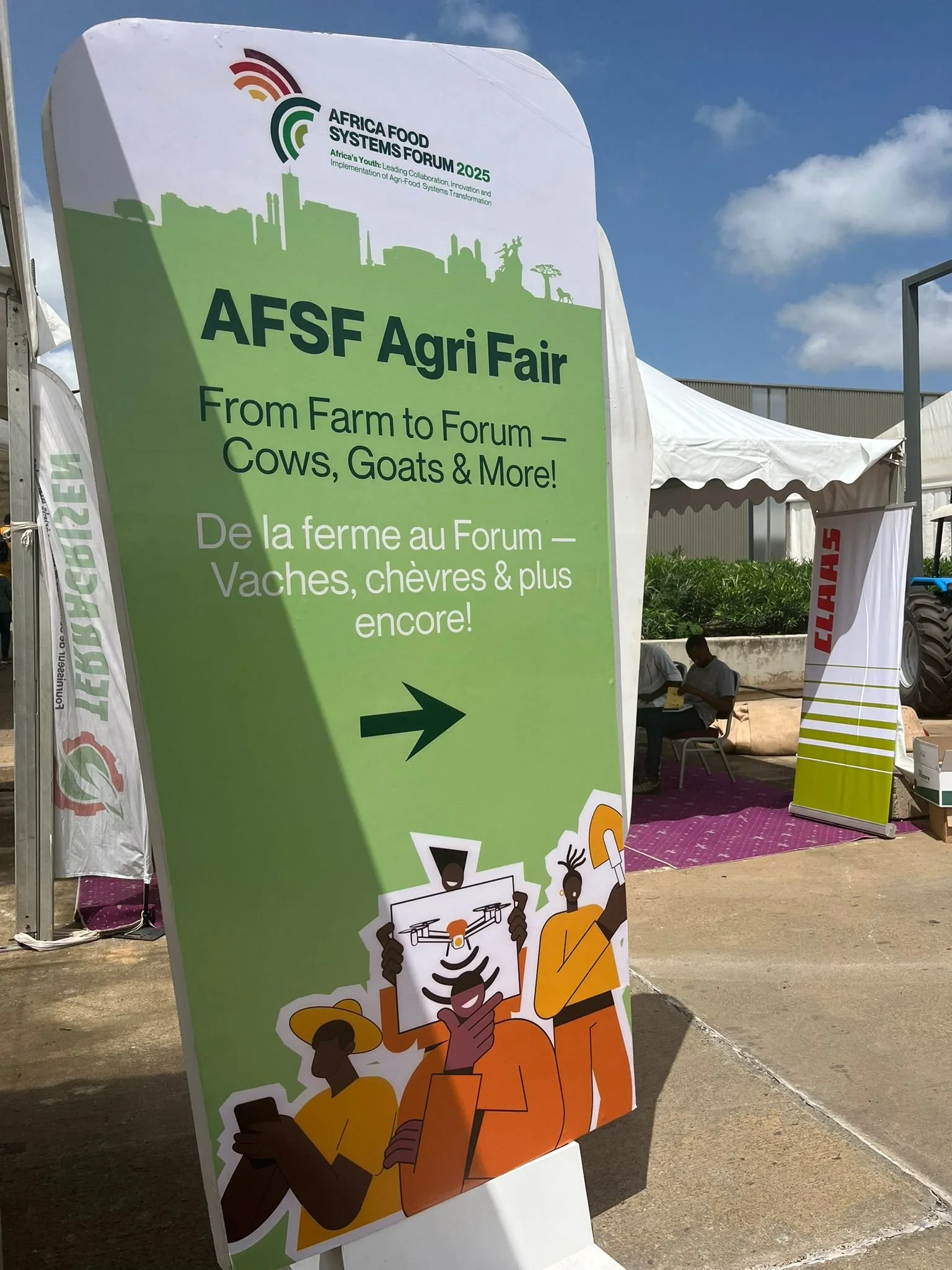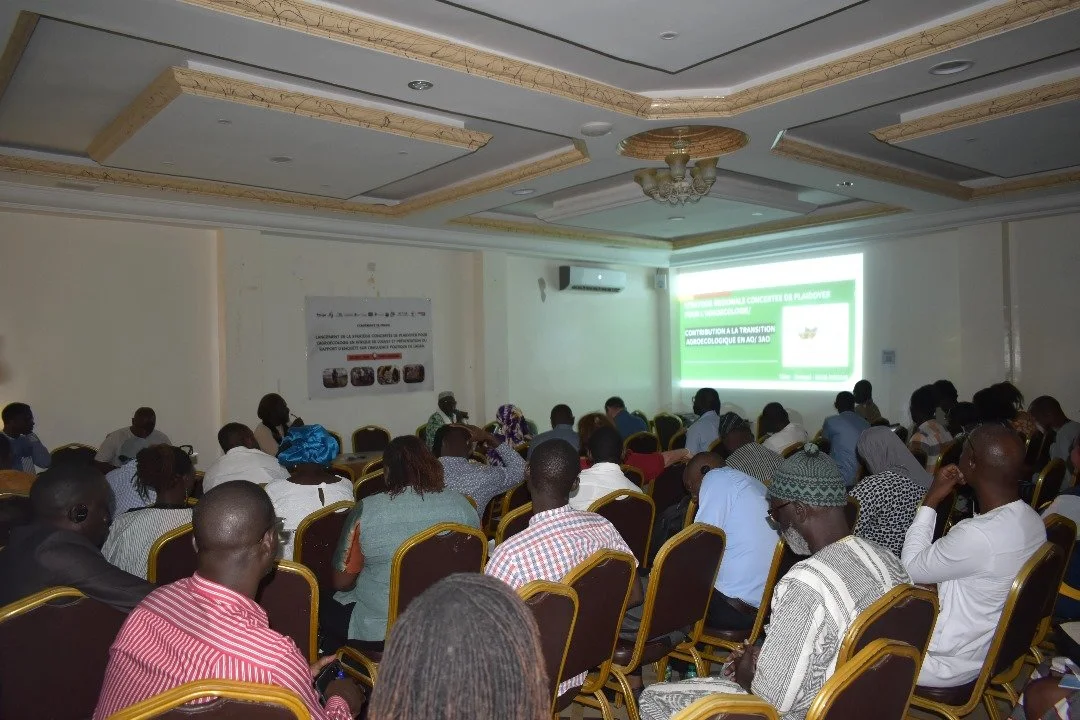The Future of Africa’s Food and Agricultural System
The Alliance for Food Sovereignty in Africa (AFSA) organized an event in Thies, Senegal, as a counter-narrative to the Alliance for Green Revolution in Africa's (AGRA) summit, Africa Food Systems Forum in Dakar, Senegal. AFSA launched a report at the event challenging the Green Revolution by exposing AGRA’s influence on African food and agricultural policies. The event featured a panel discussion with a call to action for agroecology as the future for Africa’s food system. AFSA further urged African governments to adopt agroecology as a healthy and sustainable food production that centers on smallholder farmers, farmer-managed seed systems, food sovereignty, etc.
AGRA, known as the Alliance for Green Revolution in Africa, is an initiative by the Bill and Melinda Gates Foundation and the Rockefeller Foundation, which was launched in 2006. The goal of AGRA is to promote and support the use of chemical pesticides, synthetic fertilizers, and high-yielding commercial seeds in monocropping agriculture to reduce hunger and poverty in Africa.
AGRAs Africa Food Systems Forum, 2025 - Dakar, Senegal
Since 2006, AGRA’s programs across several African countries have negatively impacted crop diversity, biodiversity and weakened local control over food systems. A key aspect of AGRA’s involvement in Africa’s agriculture is the promotion of productivity as the only benchmark for agriculture. This promotion of productivity agriculture is a one-dimensional, input-intensive, and resource-intensive agricultural system that creates a dependency for small-holding farmers to rely solely on high-yielding seeds and agrochemicals.
According to recent studies by the Rosa-Luxemburg-Stiftung, Biba, Bread for the World, FIAN Germany, Forum on Environment and Development, INKOTA-netzwerk, IRPAD, PELUM Zambia, and partners, the use of high-yielding seeds has greatly reduced farmers’ traditional varieties. For instance, in countries where AGRA policies were enforced, the production of millet, an indigenous and nutrient-dense crop, fell by 24 percent from 2006 to 2018 across 13 countries. The use of AGRA-promoted seeds further restricts farmers from the diverse crops they can grow since AGRA seeds require the application of synthetic fertilizers on the land for the high-yielding seeds to germinate and produce food. Many farmers are also beginning to experience the impact of long term usage of fertilizer and pesticides on their soil health and fertility.
Moreover, AGRA’s initiative is not solely focused on high-yielding commercial seeds, synthetic fertilizers, and chemical pesticides; AGRA is now heavily focused on lobbying African governments to influence the development of agricultural policies and market structures that promote the adoption of the Green Revolution.
Since 2006, AGRA has received over $ 1 billion USD in contributions, the highest coming from the founders, Bill and Melinda Gates Foundation, and countries such as the United States, the United Kingdom, Germany, and others. AGRA has received huge funding and resources to further their initiative of ending poverty and hunger through food production that relies mainly on agrochemicals, high-yielding and genetically modified seeds.
AGRA’s influence on policy is evident in their Africa Food Systems Forum, an annual summit that takes place in different African regions, bringing together stakeholders in the food and agricultural space across Africa. This summit brings together heads of state, ministers, researchers, institutions, organizations, and corporations to discuss a comprehensive food systems transformation for Africa. This forum positions AGRA as a leading voice in achieving Africa’s food security objective, and thus sidelines smallholder farmers and civil society organizations.
The policies and programs of AGRA do not solve food insecurity but rather exacerbate it through soil depletion, loss of farmer indigenous seed variety, and dependence on corporations. Through this yearly summit, AGRA continues to influence policies and push forth programs and initiatives that prioritize high-yielding seeds and agrochemicals, which makes farmers dependent on global agribusiness and corporations.
Hence, the Alliance for Food Sovereignty in Africa (AFSA), alongside partners in the 3AO platform, launched an investigative report, Challenging the Green Revolution: Exposing AGRAs' undue influence on African Agricultural Policies. This report examines four African countries (Ghana, Kenya, Mali, and Zambia) and AGRAs' influence on their agricultural policies. AFSA uncovered AGRA’s influence extends to embedding their consultants in government ministries to shape national policies in Ghana, Kenya,and Zambia.
In Ghana, AGRA’s influence extends to the national policy on Planting for Food and Jobs (PFJ) program, which in the second phase will shift towards industrial agriculture. In Kenya, AGRA played a role in the dismantling of the Strategic Food Reserve Program which was a crucial safety net for their national food security. And in Zambia, AGRA is involved in the National Agriculture Investment Plan (NAIP II). AGRA’s partnership in Africa seeks to promote monoculture agricultural systems through hybrid and genetically modified seeds, and co-opting grassroots initiatives, prioritizing dependency on foreign inputs, etc.
AGRA’s conference, Africa Food System Forum, is a stakeholder platform that allows AGRA to further influence Africa’s agricultural framework. The Africa Food Systems Forum gives AGRA undue influence, further marginalizes agroecological practices, and prioritizes corporate-driven agriculture. The Africa Food System Forum creates the room for increasing private sector investment while undermining farmers, communities, civil society organizations, etc.
At the event in Thies, AFSA supported 3AO to launch its advocacy strategy for agroecology, focusing on three main pillars: Farmer Managed Seed Systems, BioFertilizers, and BioStimulants. The advocacy strategy for agroecology in West Africa urges African governments to legally recognize farmer-managed seed systems in national laws to ensure that farmers preserve the right to freely share, use, and exchange their seeds. Additionally, to adopt a national biofertilizer transition plan to replace 50% of synthetic fertilizer with natural ones by developing local infrastructure for composing and microbial inoculant production, etc. This call, as AFSA and 3AO mention, is about a leading systemic shift, one that prioritizes people, soil health, farmers, communities, and democratic processes at the center of food production and reduces Africa’s external dependence. Africa’s food future must be in the hands of Africans in a way that seeks to protect Africa's genetic heritage: the seeds, the soil, the waters, the people, and the natural ecosystem
Alliance for Food Sovereignty in Africa event - Thies, Senegal
Agroecology is a food system that applies ecological principles by factoring in the relationship between plants, animals, humans, and their environment. Agroecology recognizes that agricultural production systems are not separate from ecological processes; thus, farmers, communities, animals and the environment are at the center of food production and not corporate interests or corporate produced inputs. In agroecology, high-yielding seeds will be replaced with farmer-managed seed systems, agrochemicals will be replaced with bio-stimulants, and synthetic fertilizers will be replaced with natural/bio fertilizers.
AFSA, and 3AO launch of the concerted advocacy strategy for agroecology in West Africa taking place the same week as AGRA’s Africa Food Systems Forum demonstrates a counter narrative by showing the importance of democratic and participatory processes in shaping food and agricultural policies in Africa. In addition, the event was also a call to action for all farmers, civil society members, organizations, and grassroots groups to join their voices in advocating for agroecology as the direction and future of Africa’s food systems.

